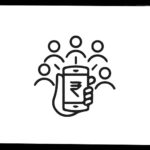In the 2016-17 Economic Survey, the concept of Universal Basic Income (UBI) was discussed as a potential solution to reducing poverty and income inequality.
It was presented as a radical idea whose time had come. The report estimated that a direct cash transfer of Rs 7,260 to every Indian — equal to the then poverty line number — would cost 4.9 per cent of gross domestic product annually.
This was a daunting prospect given the government’s limited fiscal resources, making UBI a distant and elusive goal. However, the direct cash transfers have gained popularity. The Direct Benefit Transfer (DBT), rolled out […]
Full Post at www.deccanherald.com
